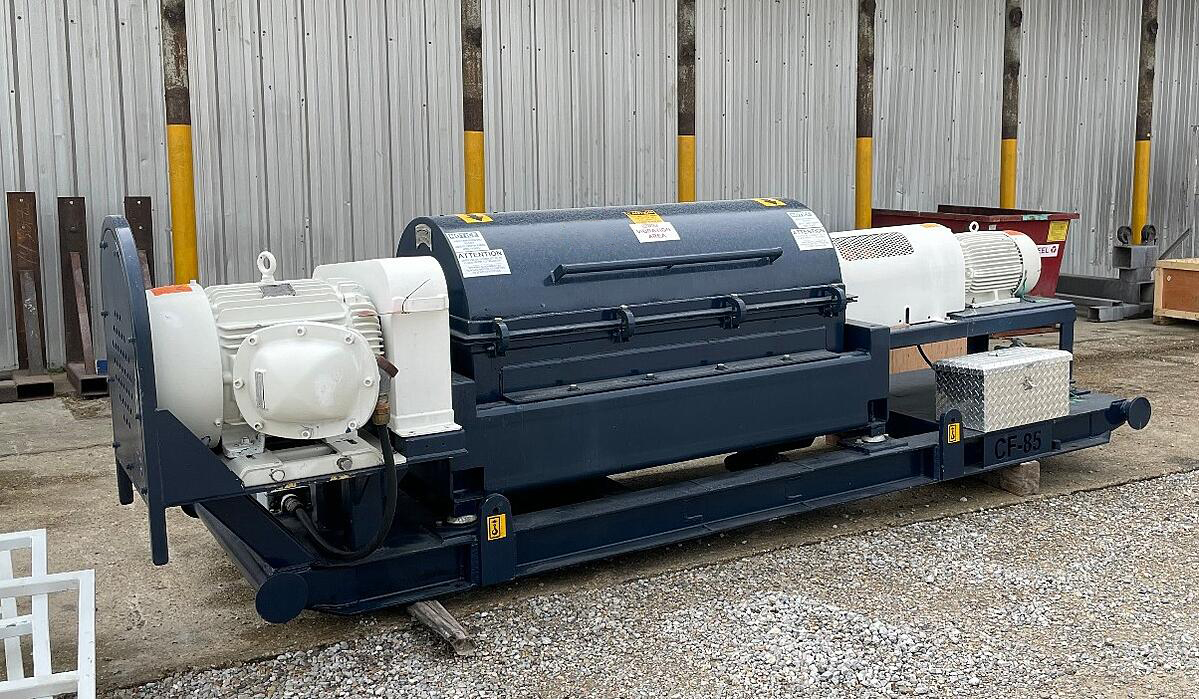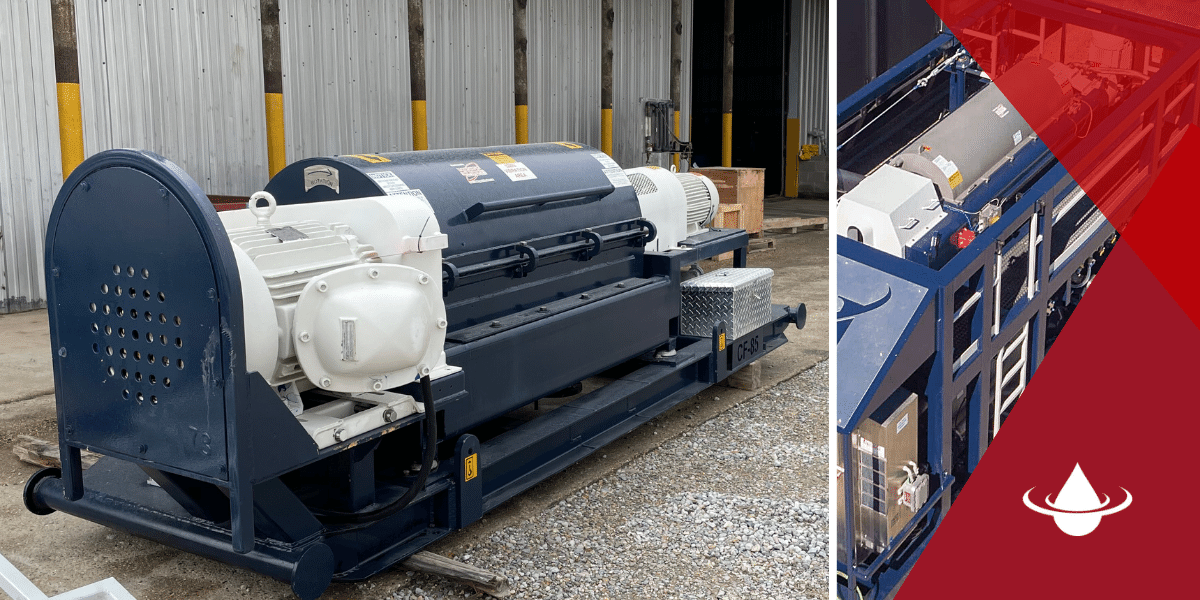Everything You Need To Know About A Decanter Centrifuge
In order to fully understand how a decanter centrifuge operates, we must first define what a centrifuge does. In many industrial jobs, solid material...
3 min read
IFM Team
Jun 9, 2021 12:00:00 AM

Today's separation and dewatering industries offer two basic dewatering technologies: belt filter presses and centrifuges.
Choosing between a belt press and a centrifuge for your sludge dewatering can be difficult if you are unaware of their different strengths and weaknesses. While both technologies will effectively produce a dry, solid cake, there are quite a few differences between the two.
The choice of using a belt press vs a centrifuge for sludge dewatering is often a difficult decision to make. Both technologies' design can produce a dewatered cake of approximately the same solids content, however, both technologies are quite different in a number of aspects.
Belt filter press systems operate on the theory of incrementally increasing the stability of the sludge by increasing applied pressure.
In other words, belt filter press systems use pressure to compress and remove liquid. In order to maintain fluid pressure and consistency, some applications use charge pumps. When it comes to performance, belt filter press usage is affected by the following factors: sludge flow rate, polymer usage, belt speed, and belt tension.
For instance, a situation where the sludge flow rate is high may result in a moist solid. Similarly, as belt tension increases, dryness increases. However, high belt tensions may lead to material spillovers and also can also contribute to a short belt service life.
Centrifuges (both decanter and tricanter) operate on the theory of applying centrifugal force to flocculated solids in a bowl, conveyed out by a scroll- operating at slightly different speeds. As the materials are forced into rotation, denser substances are forced outward while the lighter particles are separated and move toward the center of the centrifuge.
Let's dive into the reasons why you should switch from using a belt press to using a centrifuge for water treatment applications.
Centrifuges can offer large solids handling capacity in very small spaces. This is advantageous in large plants where multiple centrifuges are needed.
Centrifuges are good for greasy sludges. Centrifuges are a great selection for dewatering or separating fats, oils, and greases.
On the other hand, belt press systems have difficulty handling greasy sludges. These systems are not well suited to sludges containing high levels of oils, fats, and greases. These greases tend to blind the filter belt which normally degrades the performance of the belt press over time. Chemical cracking of emulsions is required to enable dewatering.
Centrifuge systems do not require belt wash water. This can come across as an advantage where an effluent reticulation system is not yet available.
Belt presses are continuously washed typically by recycled clarified plant effluent water. At some plants, this may not be a problem if they access to have effluent water systems for hose-down and clean-up. However, at some plants, recycled effluent water is not available and may require ways to flow water for clean-up.
Lastly, belt press systems are not externally as clean as centrifuges; therefore, they require more labor for cleanup.
Centrifuges can sometimes achieve higher cake solids than the belt press filter with a low capture (or high polymer) dosage rate. This is due to the centrifuge's shearing ability as the sludge moves through the machine, while the temperature increase in the sludge from the power energy dissipated.
When compared to belt presses, centrifuges generate negligible amounts of aerosols.
Belt presses are known to produce large amounts of aerosols. This can be true for poor quality units, or badly maintained units. Typically, high-quality machines generally include close-fitting filtrate trays, fully enclosed wash boxes, and piped discharges, so that aerosols are negligible.
Are you interested in getting more information on Industrial Fluid Management 2-Phase or 3-Phase Centrifuge Packages?
Contact us today! Our company’s continued success and rapid development are due to our ability to provide our clients with top-notch specialty service and excellent value on quality centrifuges.
Are you interested in renting a 2-phase or 3-phase centrifuge? Industrial Fluid Management has 2-phase and 3-phase centrifuge rental packages available for rent, as well as for sale.
Plate and Frame Filter Press vs. Centrifuge: Which One Do I Need to Use? - https://www.hcr-llc.com/blog/plate-and-frame-filter-press-vs.-centrifuge-which-one-do-i-need-to-use
THE CHOICE OF BELT PRESS vs CENTRIFUGE - http://www.magytec.com/Magytec_International/Dewatering_Technology_files/beltpressvscentrifuge.pdf

In order to fully understand how a decanter centrifuge operates, we must first define what a centrifuge does. In many industrial jobs, solid material...

Today's separation and dewatering industries offer two basic dewatering technologies: belt filter presses and centrifuges. Choosing between a belt...

The main difference between decanter and tricanter centrifuges is that the tricanter centrifuge not only separates solids from liquids but also...